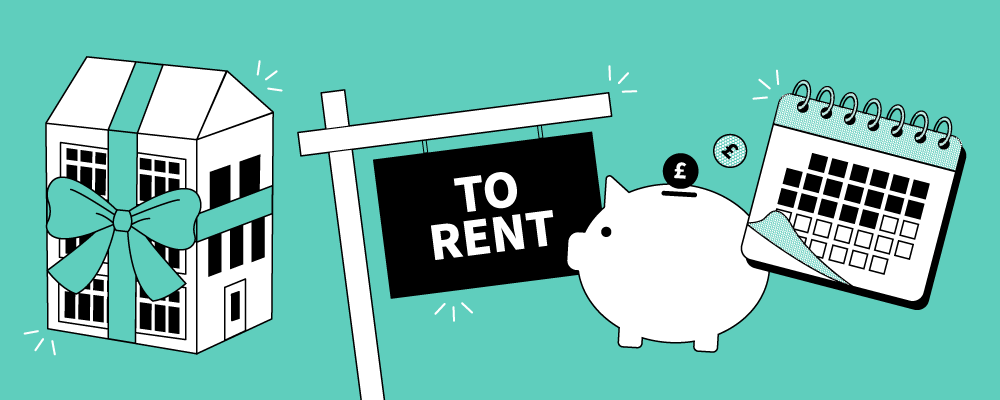
Most buyers take out a mortgage to purchase their new home. If you’re ready to become a homeowner but are unsure how to navigate the process, we’re here to help. Our guide covers the different mortgage types and their pros and cons so you can make an informed decision.
What is a mortgage?
A mortgage is a loan from a bank or building society that goes towards the total cost of the home you want to buy. The borrower agrees to pay the lender monthly instalments over a set period.
How do mortgages work?
The amount of money you need to borrow from the mortgage lender is the price of your new home minus your deposit. Interest rates and fees are added, but these vary depending on the mortgage you choose.
Mortgage types pros and cons
Some of the most common types of mortgages in the UK include:
1. Fixed-rate mortgages
Fixed-rate mortgages are ideal if you’d prefer to pay the same monthly amount. You can fix the rate between two and five years, and it will stay the same regardless of the lender's or the Bank of England’s rate.
| Pros | Cons |
| Your monthly payments and rate will stay the same, regardless of what happens in the market. |
If interest rates drop, you may pay more than you would on a variable-rate deal. |
2. Variable-rate mortgages
Variable-rate mortgages are determined by the lender’s standard variable rate (SVR). This is the interest rate set by your lender, usually between 1.5% and 3.5% above the Bank of England’s base rate.
These mortgages are affected by the Bank of England’s base rate. This means that if the rate falls, your rate will fall; if the rate increases, your rate will increase.
| Pros | Cons |
| Your initial monthly payments will be lower, and so will the following payments if the interest rate falls. |
Interest rates fluctuate, so your monthly payments may increase if the rate increases. |
3. Discount mortgages
With discount mortgages, you’ll pay the lender the SVR with a fixed discount for two to three years.
| Pros | Cons |
| Your rate will stay below your lender’s SVR throughout the deal. |
Your lender could change the SVR at any time, meaning your rate could increase. |
4. Tracker-rate mortgages
Tracker-rate mortgages align with the Bank of England's base rate, meaning any change will affect your rate.
| Pros | Cons |
| Your mortgage rate is only affected by the Bank of England’s base rate, not your lender’s. If it falls, your rate will usually fall, too. |
You won’t know how much your monthly repayments will be throughout the deal. |
Other mortgage types
The other types of mortgages include:
• Capped-rate mortgages
• Interest-only mortgages
• Cashback mortgages
• Offset mortgages
• Joint mortgages
5. Capped-rate mortgages
Capped-rate mortgages guarantee that your payments won’t rise above a pre-agreed amount.
6. Interest-only mortgages
With interest-only mortgages, you only pay the interest on the amount you’ve borrowed each month, instead of the entire loan.
7. Cashback mortgages
Cashback mortgages are ideal if you want extra cash when moving in. This could be anything from a one-off payment to a percentage of the overall loan. Some lenders will release the payment upfront, while others may wait until they receive your monthly payments.
8. Offset mortgages
This combines your mortgage, current account and savings account. It uses your savings and spare cash in your existing account to reduce the interest you pay on your mortgage.
9. Joint mortgages
This is when two people apply for a mortgage together and are both named on the deeds as joint tenants or tenants in common.
Which mortgage type is best for me?
Before applying for a mortgage, consider the pros and cons of each type. You can use a broker to improve your chances of getting a better deal, as they have in-depth knowledge of the lenders and the market.
Ask yourself these questions:
• How much risk am I willing to take with interest rates?
• What monthly repayments can I realistically afford?
• Do I want to pay off the entire loan throughout the mortgage?
Discover our brand-new homes and flats in and around London. These properties are stylish, energy-efficient and located near excellent amenities to cater to all buyers. We also have unique homebuying offers to help you purchase your first home or sell your existing one.
Call or visit our Sales Advisers today to start your journey to homeownership.


